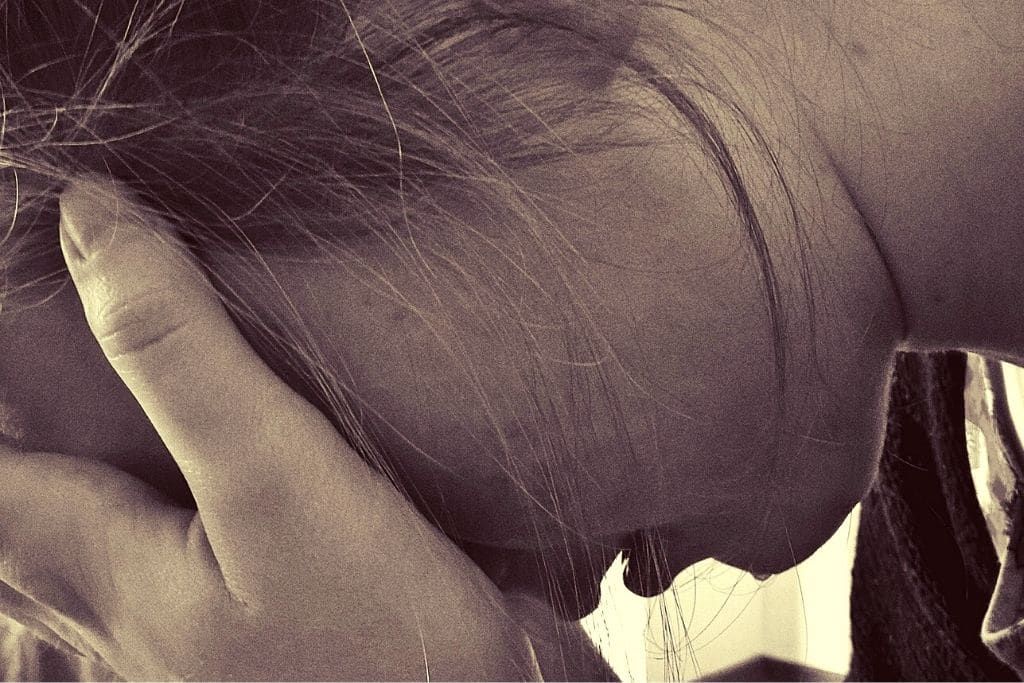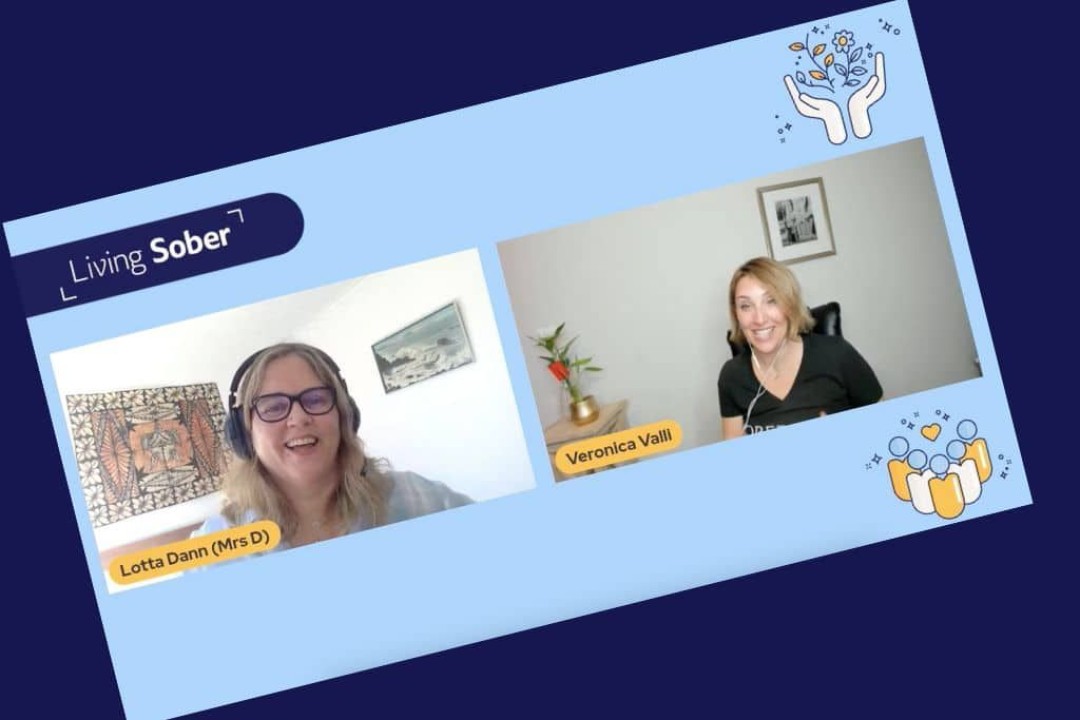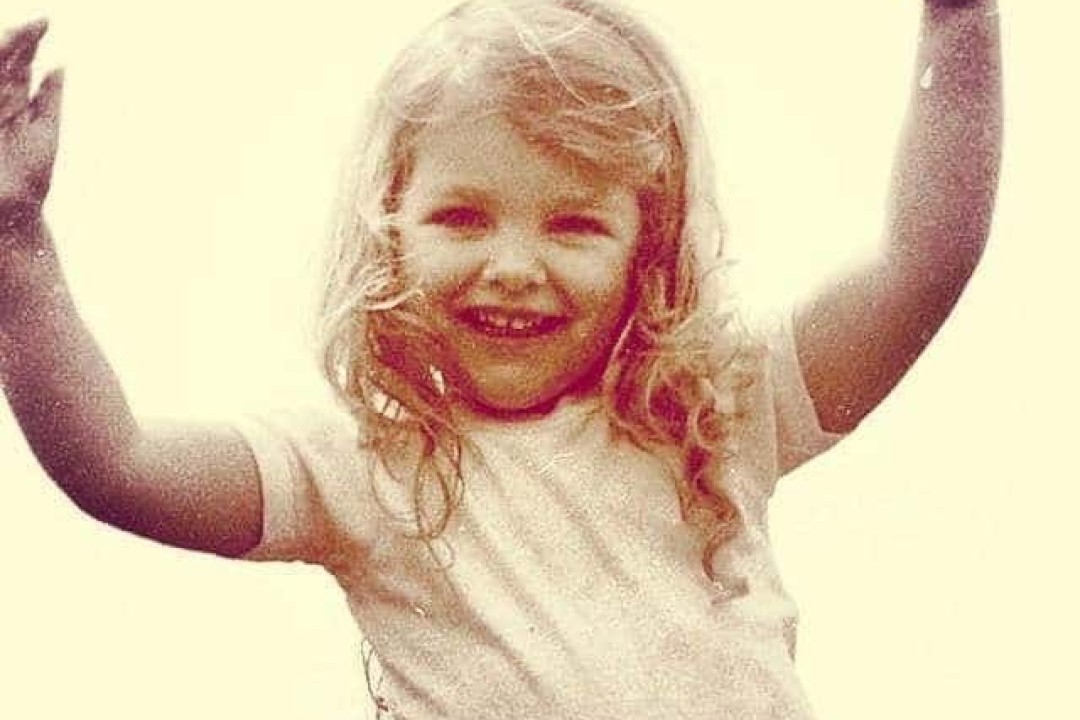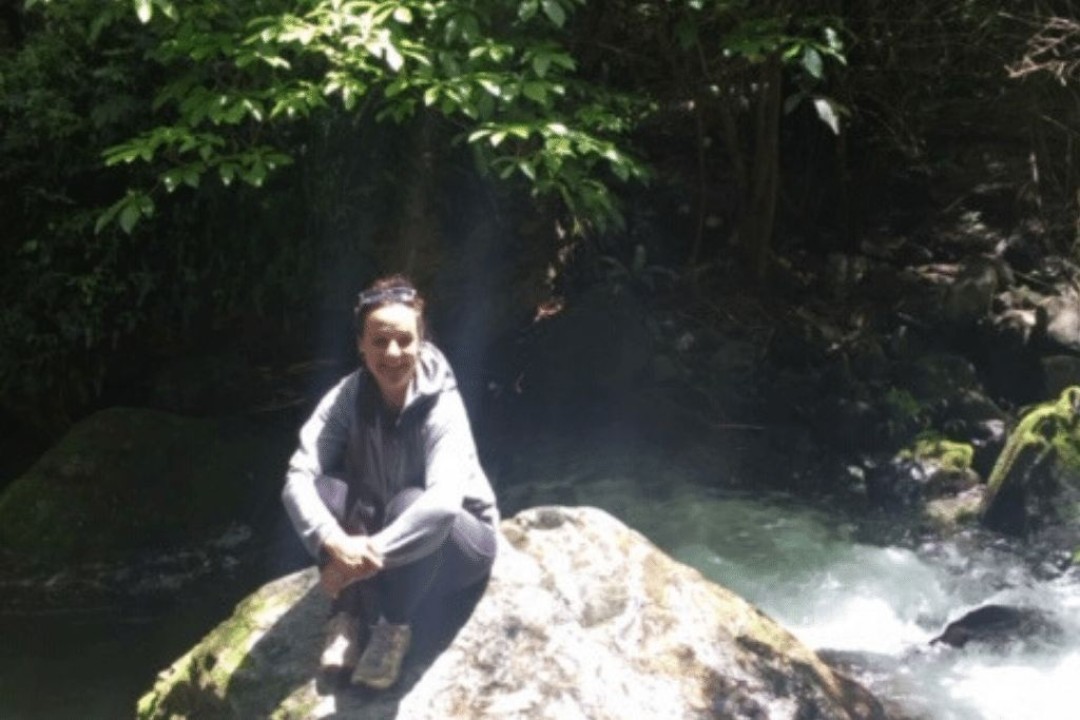Sober Story: Stella
December 16th, 2020 Interviews 6 comments

This week’s Sober Story comes from Stella, a 42-year-old from Sydney, Australia.
=========
Mrs D: when did you stop drinking?
Stella: 6th of September 2008 – I’ve recently celebrated my 12th sober birthday!
Mrs D: Same sober date as me! What was it like for you before you quit?
Stella: Oh where to start? I look back on it and I’m really sad for the struggling, lost, confused and depressed person I was. More than that – I was hopeless. I really had no hope for the future and I was majorly depressed. I was never a daily drinker, but I was a regular drinker that’s for sure, and once I started I just couldn’t guarantee my behaviour or the amount I’d drink. I held down a full time, highly demanding job, working in a creative industry that really normalised drinking (and partying, taking drugs) to excess. I was surrounded by free bar tabs, pubs, clubs, gigs – and many people drinking the same or even more than me. Looking at the bigger picture, I’ve always battled with depression, and this ramped up hugely in my last few years of drinking.
Mrs D: What do you think led you to drink too much?
Stella: As an over-thinking introvert, drinking was a great way to 1) STOP thinking and just numb the mind for a bit, and 2) lose the shyness and not worry about every word I said. My job as a publicist meant I was often the one leading schedules, introductions, events – always around people and very ‘out there’. I’ve always worked a lot and juggled many balls and even at the end of my drinking I was a very high functioning alcoholic, at least in public. Behind doors, at home with the bottle of wine, crying myself to sleep most nights and feeling so so alone, it was very different.
Mrs D: That sounds hard. Were you trying to work on yourself?
Stella: I was seeing therapists, doing yoga, going on month-long cleanses, trying (and often failing mid-way through) to do alcohol free months, I was marking off the alcohol free days on my calendar – trying to fix myself in so many ways – but I still didn’t think, and even refused to acknowledge that alcohol was my problem. I used to say, “If you’d had my upbringing, YOU’D drink too”. It was always the fault of my dysfunctional and abusive family, it was always the ex-boyfriends fault, it was the workloads fault. Never the alcohol. And I honestly believed that at the time.
Mrs D: So what led to you finally getting sober?
Stella: The final straw? Simple. I landed in hospital for the 3rd time, and they wanted to commit me. On my hospital admission form it says “overdose, suicide attempt” – but I didn’t want to commit suicide, rather, I just wanted so desperately for the pain and sadness to stop. As far as they were concerned, it was the same thing. Suicide attempt. In hospital they treated my cut up wrists, they monitored me and checked me to see if the multitude of pills I had taken were going to cause long term damage (thankfully, they haven’t). And when I woke up the next day, they didn’t want to let me go. That really scared me. This final ‘attempt’ I’d just had enough. I actually remember feeling super calm after making the decision – there was peace at last, and I realise in hindsight that I hadn’t known or felt peace for so long. Even today, that makes me so so sad for the pain I was feeling at that time. Deep down I knew I probably didn’t have another attempt left, that I’d been ‘lucky’, and that’s what got me through the doors of recovery. I knew something had to change and I’d tried everything – everything except stopping the boozing. I had hit rock bottom. I was also turning 30 the following year and I made a commitment to myself that I wouldn’t live another decade as messy and sad as the one my 20’s had been. I got sober 2 months before my 31st birthday.
Mrs D: Yay! How was it for you in the early days? What was most difficult?
Stella: I remember sitting in my first AA meeting next to the woman who would become my first sponsor. I was fidgeting, crying, I felt like I was jumping out of my skin – and she seemed so calm, so peaceful, so together. And she looked cool and young. She was not what I imagined an ‘alcoholic’ to look like. When she shared, she talked about the ‘noise in the head’ and how stopping drinking and doing the steps helped to quieten down that noise. I had NEVER, in all my therapy and books and challenges and reading and exploring, heard anyone talk about the ‘noise’ in the head. Early recovery for me was like that noise was suddenly switched up to 110%. It seems obvious right? I didn’t have my numbing, coping mechanism – everything was turned UP and it was hell on earth. Of course it was going to be full on – all the things I’d drunk to avoid were suddenly there, waiting to be dealt with. It was a new way of living.
Mrs D: Sounds hellish.
Stella: It wasn’t all hard every day – I had moments, small moments at first, of real peace, and wow, they were priceless. And the longer I stayed sober day after day after day, the bigger those moments of peace lasted. I definitely felt the ‘pink cloud’ of early recovery bliss – waking up without a hangover is in itself life changing, after years of being foggy. I lost a lot of weight (the alcohol bloat), I had energy, and I started to think clearly. I reached out to others in recovery like they were my lifeline (they were!), and I went to daily meetings for the first 90 days. That’s what got me through. I cried and ate chocolate. A lot of both. And I kept showing up. I took the advice of my sponsor, because she’d been there, she’d done it. That was priceless for me. She told me to keep it simple – on each day, just show up, shower, go to work, go to a meeting, eat food, sleep. I literally wrote those tasks down in my diary and crossed them off as I’d do them. It was so simple but it got me through. I really lived the “24 hours a day” motto in those early days. I just didn’t know up from down, and the structure of meetings, of one day at a time, and starting again with a fresh slate every single day was life changing. It helped with my ‘crazy’ head that was switched up to 110% – quietening that noise was the most difficult thing for me, but eventually it settled.
Mrs D: How did your family & friends react when you started getting sober?
Stella: I actually didn’t tell too many people I was in recovery to start with. I was just trying to get through one day at a time, and I was embarrassed and felt a lot of shame. I kept it very quiet. Also, I honestly couldn’t see myself giving up alcohol for ever – so I didn’t think about that. I just wanted to not pick up a drink for the next 24 hours, day after day. My sister was a great support to me – she was the only family member to know, and she was the one who came to pick me up from hospital after my last suicide attempt, so she was quietly over the moon that I was in AA. My workmates didn’t realise so much, as I would have sparkling apple juice in a wine glass at work functions, or lemonade in a vodka glass, and I’d just leave events early. I was also doing a lot of yoga in these days of early recovery so I let people assume I was doing more and more yoga so couldn’t stay out as late. I also really began to change my friends at this time, which was ok as I was making a great new network of recovery mates. Those few close friends who knew about my trying out AA were very supportive and we started going out for lunch instead of boozy dinners.
Mrs D: Have you ever relapsed?
Stella: No. It took me about 2 weeks of going to meetings to fully stop drinking (it took me a while to realise that you didn’t drink in AA), but once I stopped, I have stayed sober for 12 years now, a day at a time. Once I hit 90 days, things changed. I desperately clung onto recovery and my count. I felt so full of shame about having to stand up in a meeting and say I’d drunk again, that that kept me going for the first couple of years of my recovery. After those first couple of years, I really started to build a life worthy of fighting for and protecting, and I had no doubts whatsoever that drinking would take that away from me. I also knew that if I was to drink, I would likely end up in the hospital again and I just don’t think I have that much ‘luck’ left. I don’t want to tempt it.
Mrs D: How long did it take for things to start to calm down for you emotionally & physically?
Stella: Those first 90 days of sobriety were seriously Just Getting Through. Meetings, sleep, work, over and over again. I took good actions, I showed up, I became quite regimented in my approach and filled my free time with meetings and step work. I needed that structure because my life pre-sobriety had become very messy and reactive. Then at about 2 years, I started to trust that I could do this and that I could see a lot of value in my life, and myself. This was a pivotal time for me.
Mrs D: It takes a while for some of the real benefits to show doesn’t it?
Stella: I think each year that I get under my belt adds more confidence. The first year I felt clear and lost a lot of weight. The benefits of sobriety were clear. The second year I became used to living a sober life, I changed sponsors, I knew what kind of sobriety I wanted. I started working the steps, I advanced in my career. I’ve even changed careers over this time and would never have considered that I have options and choices before. Finally this past year I’ve cleaned up all the financial debt I incurred from a messy life – it really does keep getting better.
Mrs D: What about socialising and your work, how hard was it being out and not drinking?
Stella: Because my job was in a creative industry, I spent a lot of time in pubs and clubs for work. I actually appreciated this because it made me deal with temptation very early on, and threw me in at the deep end. In my first week of sobriety, I had a big work event and as I walked in the door, fresh from an AA meeting, my HR boss saw me and came over to give me a beer! I took it, said thank you, and as he moved on, I popped it down on a table. This was my life and I am actually quite grateful I learnt some coping mechanisms very early on, and learned to be around people who drank. I never got the chance to become frightened of being around bars and alcohol and people drinking. More generally, I realised a lot of things when I became sober. I realised that not everyone is up there dancing and being loud. Especially at work events – I was shocked to notice that lots of people had a drink (or none!) and left as soon as they could. They didn’t stay out till 3am. I started finding new friends who did things like this, and it was really nice. It was also a little sad because I realised I just didn’t have that much in common (other than drinking and partying and ‘fun’) with a lot of other ‘friends’ who I would spend every single weekend out partying with.
Mrs D: Was there anything surprising that you learned about yourself when you stopped drinking?
Stella: How strong I really was. That was a huge lesson for me. I used to think I was broken, and hated to share my vulnerabilities. Through getting sober, I realised there is a huge power in honesty, in showing up, and I began to see very quickly how strong I was. I think everyone in life – sober, drinking, whatever – should do the 12 steps. They are an amazing, humbling process to really begin to understand how you deal with life.
Mrs D: How did your life change?
Stella: The better question would be how HASN’T my life changed, because every single part of it has shifted. Life is still challenging – I’m a sensitive soul and I feel a lot, and sometimes it was so much easier to NOT feel (alcohol to numb was a relief at times). But when it began to cause more problems than it offered solutions for, it was clearly time to change. I broke old patterns and habits, I began to dissect the hows and whys of my life, I began to choose who I wanted in my life and who was a positive influence for me. There was a big waking up period that was not comfortable a lot of the time, but it’s oh so worth it.
Mrs D: Agreed! Can you pinpoint any main benefits that have emerged from getting sober?
Stella: I used to joke that if the best thing about sobriety was just waking up every day without a hangover, I’d be ok with that. And that still is one of the best benefits! A clear head is priceless. But nothing beats actually wanting to be alive. I now have a life worth living, and as someone who once didn’t want to live, wow, I get heartbroken to think about that. I used to be in so much pain, my heart really hurt. And now I look forward to getting up and being an active participant in life. I have dreams, and I know I’ll achieve them. When I completed the 12 steps for the first time I got a tattoo to remind me of the AA idea of being Happy Joyous and Free, and every day I see it and get reminded that I am free. I am not hopeless anymore. I still struggle with depression and anxiety but one of the biggest stresses of my life, the ‘running away’ and numbing out, has been taken away and that is huge. Think of your dream life – realistic but beautiful – and I’m living that, all thanks to getting sober.
Mrs D: Would you do anything differently given the chance to go through the process again?
Stella: No. It’s been heartbreaking and stressful and life changing and amazing and empowering and exhilarating and I wouldn’t change a thing. It’s my journey, and it’s gotten to me to this point and for that, I’m truly grateful.
Mrs D: Any advice or tips for those who are just starting on this journey?
Stella: Keep showing up, a day at a time. Break it down into small portions – don’t drink just for this next hour, and then this next hour, and then this next one. That’s all you have to do. It really is that simple. You don’t have to think about doing this for 20 years or for the rest of your life. Connect with those that have done it, learn from them – you don’t have to come up with all the answers yourself. There is power in our shared experience and YOU ARE NOT ALONE. Be aware of the HALTS (hungry, angry, lonely, tired, stressed) and the noise in your head. And keep coming back to this freedom. Over and over again. And before you know it, you’ve got years under your belt, and a beautiful, drama-free life you only dreamed of.
Mrs D: Everything you say is so great! Anything else you’d like to share?
Stella: I didn’t think alcohol was my problem, and I used to say I could never give up drinking because then what would I have at my wedding? What would I have at the big moments in my life? These thoughts don’t even enter my head anymore and I don’t miss them. It’s nice to know there’s another way. Even if i didn’t think alcohol was the problem. Life is good now, and you can do it too. I know, because I did. You’ve got this. x
Continue reading
The Power of Lurking
We are so fortunate in today’s world that we can do all manner of research, investigation and exploration from the comfort of our own homes.
May 9, 2024 – 15 comments
Sobriety Chat: Veronica
Listen to author, podcaster and clinical psychotherapist Veronica talk about how she feels about your younger drinking self, the work it takes to uncover what lies under alcohol abuse, the co-opting of feminism to sell alcohol to women, and how sobriety is becoming more normalised on social media.
October 11, 2022 – 4 comments
Sober Story: Alissa
This week’s Sober Story comes from Alissa, a 46-year-old living in Thames.
January 14, 2019 – 8 comments
Sober Story: Jenna
This week’s Sober Story comes from Jenna, a 32-year-old from Christchurch.
April 18, 2019 – 27 comments



